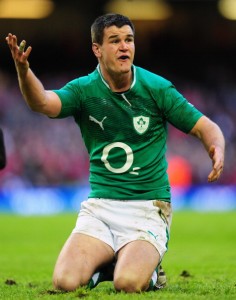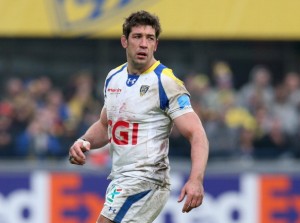
Bounding back: Paul O'Connell played a real captain's knock against Harlequins in the Heineken Cup quarters
By Alan Dymock
LAZARUS HAD never seen the Rocky movies, but if he had it is impossible to imagine him losing the Bethany heavyweight title.
Confusing myth with reality – badly? Well, you would be forgiven for doing so just weeks before the Lions squad is selected. The word “comeback” is firmly on everyone’s lips.
This weekend the ‘Man Who Would Be Ten’ Jonathan Sexton is pencilled in to make a comeback for Leinster. He has much to prove with the one-week bandwagon for Jonny Wilkinson and Ian Madigan currently getting a hot pink touch-up and fitted with turbo boosters, but this may be a return watched more closely than most.
The interesting thing is that if he does return it comes against Munster’s own bounceback beau ideal, Paul O’Connell. The lock turned in a true captain’s performance in the quarter-final of the Heineken Cup against Harlequins, roaring his young and not-so-young charges into a stirring second-half performance that saw the province into the last four.
He had previously hinted that it takes a mere handful of games to get back to form and onlookers scoffed. When the twilight starts to draw in on a player’s career there is a sense that their graying body will struggle to cope. However, he was true to his word, elevating his performance on a grand stage while Quins and Chris Robshaw were the ones looking like they had been up for three days straight.
It poses an interesting question about the dependence on known quantities and the elixir of form. Some players – and this includes a very small band of success-conditioned professionals – only need a few weeks of build-up or even a short time in tour camp to prepare themselves to perform in Test rugby. O’Connell and Sexton seem to be more driven than the M25 and arguments could be made to include the pair come Lions time because of their ability to will themselves forward. With others, though, it becomes harder to justify leaving out form players.
Discussions of captain are by the by and with O’Connell there is no guarantee that he would start should he tour, but with discussions about the like of Nathan Hines’s performances for Clermont Auvergne and potential second-row experience for what will undoubtedly become an arduous tour at some point, the Irishman offers a soothing balm. He, and perhaps even Brian O’Driscoll were Warren Gatland and his team inclined to take the centre, would be a calming influence that could silently enforce and hold up the ideals of any younger captain.
History teaches you much about what makes a successful tour. When you ignore the flapping panic and bumping gums that invariably create the din before a squad announcement, Gatland will be aware that he needs a sense of team togetherness that the 2001 and 2005 tours did not have. He needs a drive and a sheer bloody-mindedness within his squad that can push players to surpass even what they have done for club and country. He needs to pick with balance, complementing talent and squad harmony in equal measure. That means picking players that, to a man, could play Test rugby, but also players that, were they not, could still boost and influence those that do.
So much talk is about exciting bolters, but when you are off for a month-plus, perhaps the comeback specialists are best placed to be in your corner with you.







